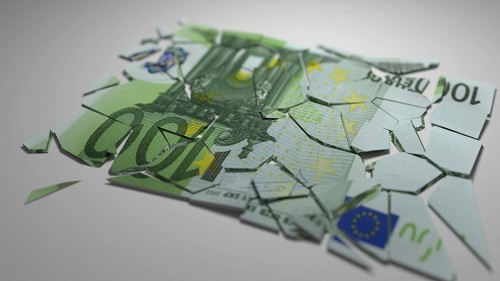The holidays are almost over, for those lucky enough to be able to have holidays, not in the not_working sense, but rather the peace_of_mind sense. Suddenly people remember the misery of their reality, the lack of prospects, the bleak predictions and — above all — that those who are, in theory, responsible for fixing this, at an institutional level, that is those in power, both at home and abroad, are selfish, corrupt and myopic blockheads. Here in Greece we’ve been expecting ‘talks’ about the ‘deferment’ of some payments, the ‘extension’ of the support programme even since the ‘new’ government was elected, over two months ago. Interest in Greece waned, as Europeans collectively headed to the beaches, mountains etc., but now that the summer is all but ending, whispers about Greece, its exit from the Eurozone and its central position in the world affairs are growing stronger, consuming ever more bandwidth, storage space, ink and gray matter.

The collective delusion continues as the public is constantly fed all sorts of stories about Greeks and Greece, more than ever before in my lifetime; stories often painting Greece as something much less or much more than it is, giving rise to completely flawed impressions about the country and its people, and perpetuating the myth that what the Eurozone is experiencing is a crisis that started and is dependent on Greece, as if the minuscule fraction of the world’s GDP that Greece possesses or its membership to the Euroclub had anything to do with it.
It strikes me as extremely weird that Greeks suddenly started ‘hating’ Germans, that Germans suddenly started thinking of Greeks as lazy, that the whole European solidarity concept that several generations were brought up with in the past sixty-odd years went down the drain so quickly. Bild-trash aside (and Bild is not a monopoly in publishing trash of course, there are scores of trashbloids both in Germany and elsewhere in Europe, including, of course, Greece), the crisis has helped Germany in many ways, both in terms of employment, exports and political power within Europe, while a consumption-driven periphery dried up. And while Greece is indeed a special case of inefficiency, corruption and waste by western european standards, it is no worse than many eastern european countries, nor is it exceptional in its flaws. It just so happened to have had the dumbest fscks possibly imagined for too long, coupled with a running tap of cheap loans and a population so deprived of freedom and wealth that was willing to tolerate the endemic abuses of the law, the people and the public finances for years. But not all Greeks are like that, as not all Germans are Bild-reading idiots.
What’s particularly striking is the myopia of a generation of European leaders devoid of all sense of vision for Europe, ignorant of the continent’s history and indifferent to its role in the global community. There is no other explanation for the lack of foresight, the lack of strategic thinking among European leaders today.
The fact that the media, journalists, analysts and economists still talk about Greece, avoiding even to acknowledge that this crisis goes well beyond Greece or even Europe, who still remain in denial about the dangers and flaws of the fundamental value system in use globally today that pervades our civilization and threatens peace and prosperity. This is not a ‘financial’ crisis in terms of classical capitalism. It’s not a recession. It’s a deeply cultural crisis of a system that dismisses the well-being of people, the preservation of the environment, the cultural and scientific progress as secondary to a single, monolithic and tyrannical metric, profit, distorting the very essence of capitalism, once a bearer of liberty in a world marred by feudalistic values, nobility and classes, nepotism and corruption, but which today lacks the very fundamental moral and contextual foundations necessary for it to exist.
Yet even those who acknowledge the geographic and semantic difference of the crisis, those who understand that the crisis is not a deterministic part of our system, part of the normal flow of the economy, but a nonlinear, potentially devastating crossroad, usually fail to provide meaningful, realistic and — simply — better solutions to the problems we face today, typically at worst reducing the world to a single-dimensional left vs right argument or — at best — rehashing outdated divisive theories about capital and labour, classes and freedom, masturbatory philosophical diatribes not much better than this article, but in contrast to it, largely accompanied with the pomposity of a scholar. If anything, we live at a time when, despite all the advances in technology, access to knowledge, speed of communication and collaboration, there is very little original research on how we should organize ourselves, deal with our problems, manmade or not, and better our lives and those of those that will follow. And in some way, this is more frightening than the crisis itself.
The coming months and years may prove decisive to the way billions of people will live their lives, the way Europe, the U.S and the ‘West’ in general will stand in the world, and whether we’ll escape from the new dark ages of extremism, religious or political, the irrational and corrupt, the hypocritical and indifferent or if we’ll be a victim of our collective naivete.
